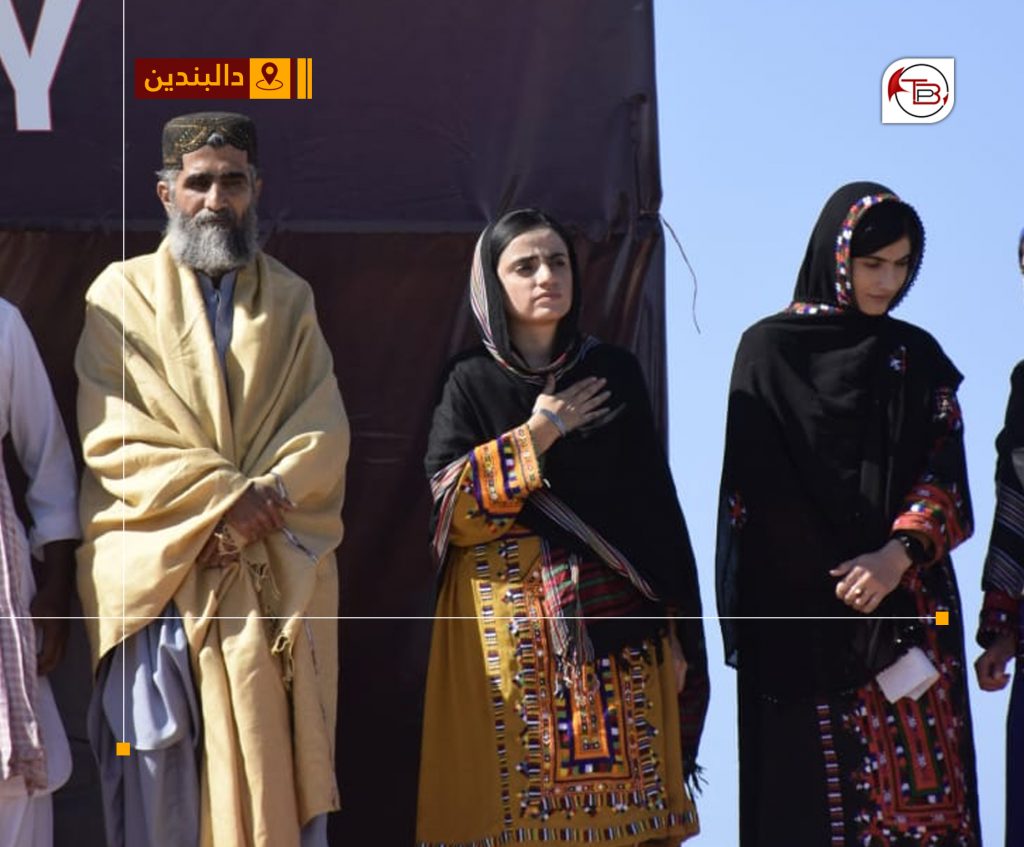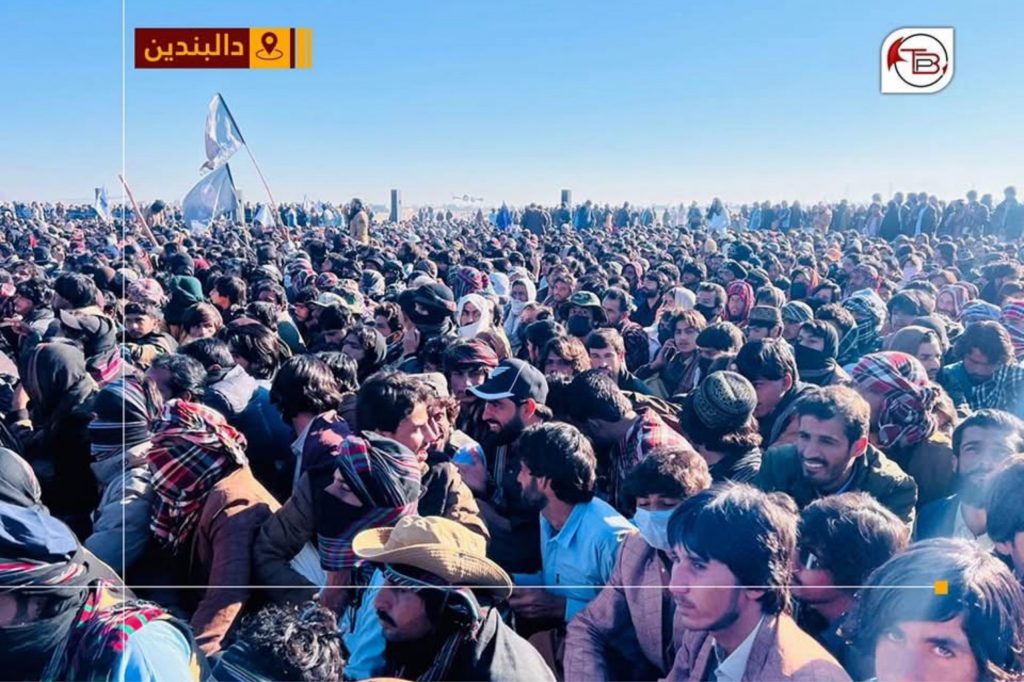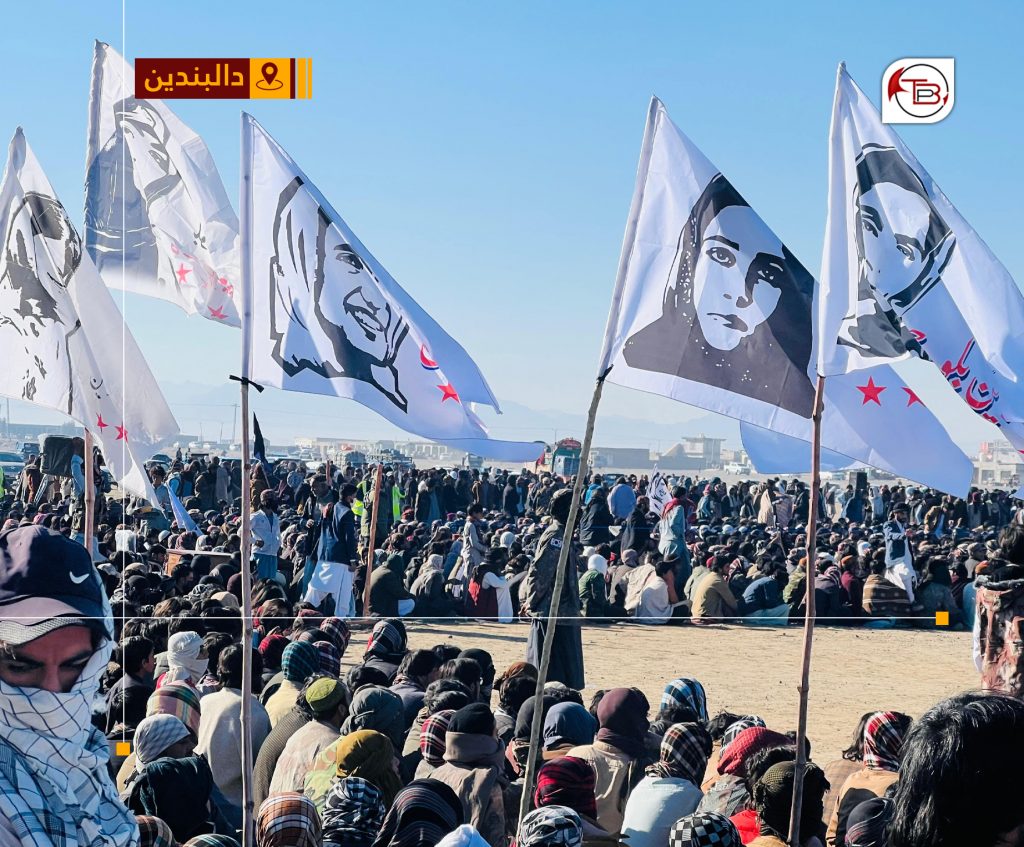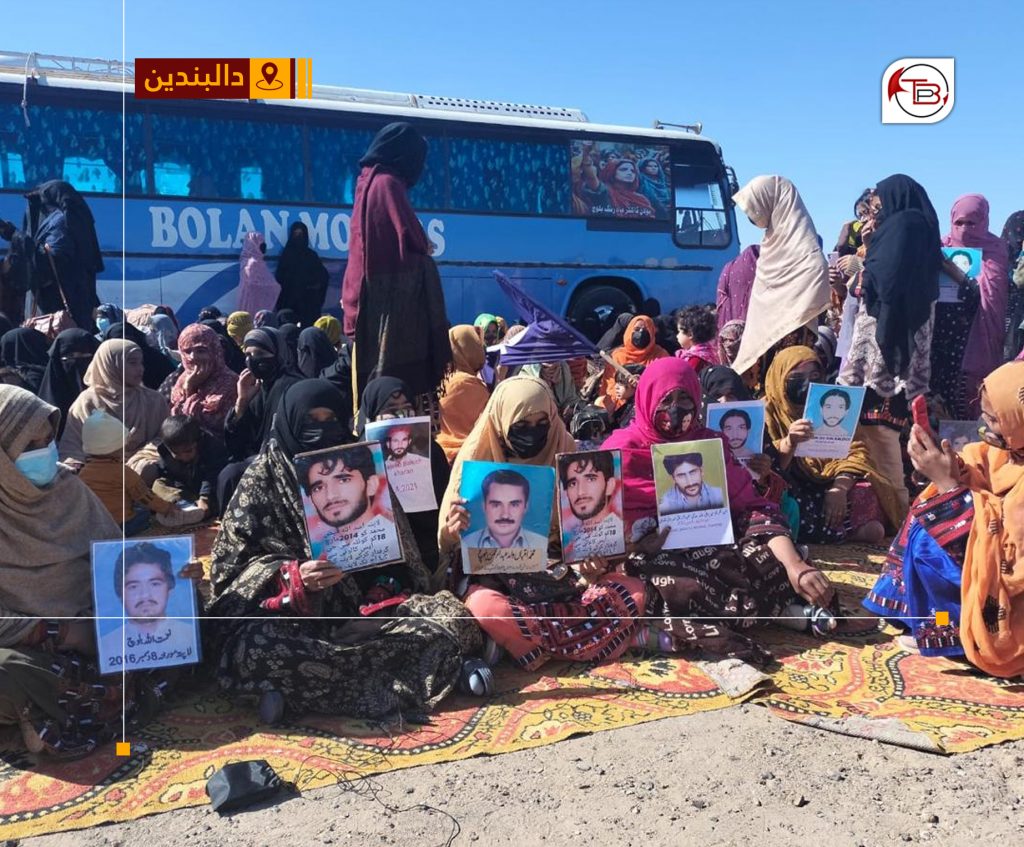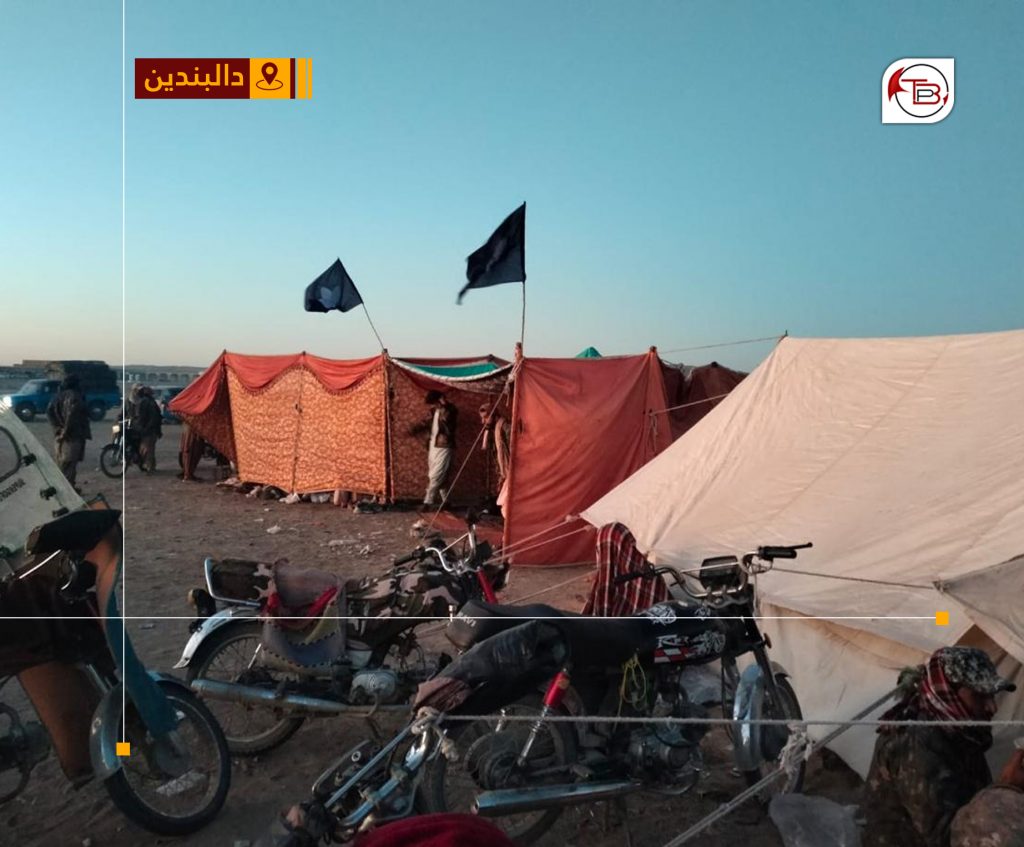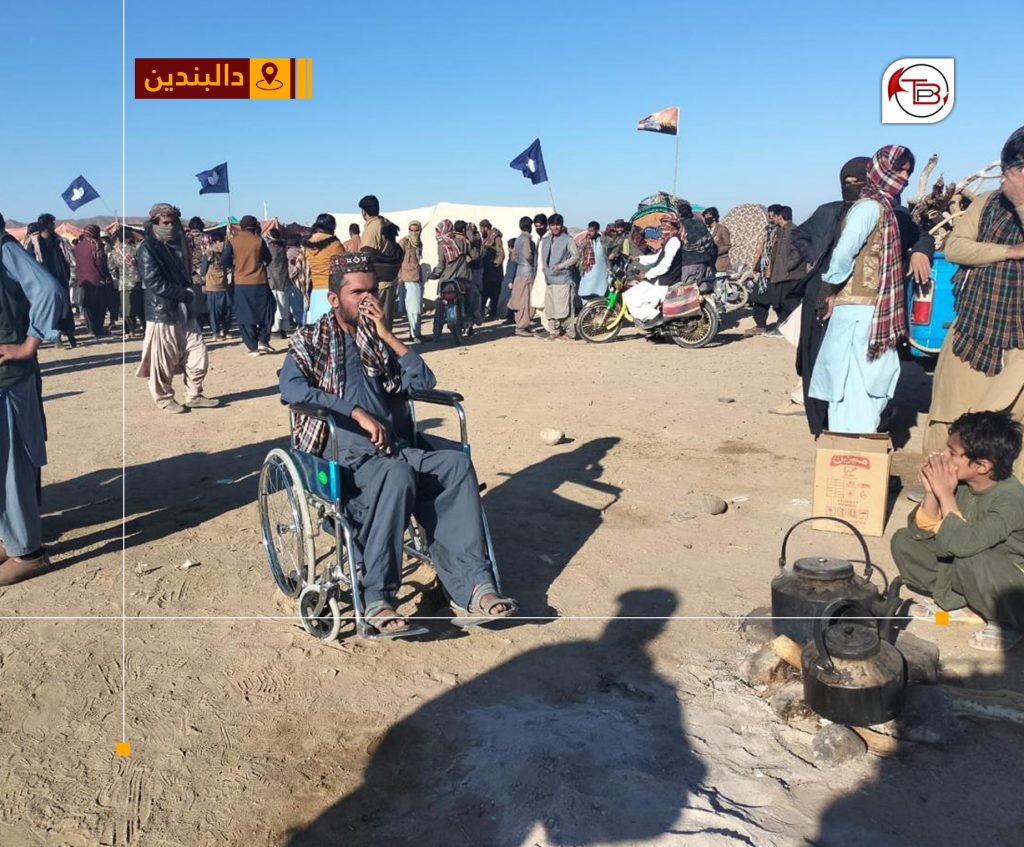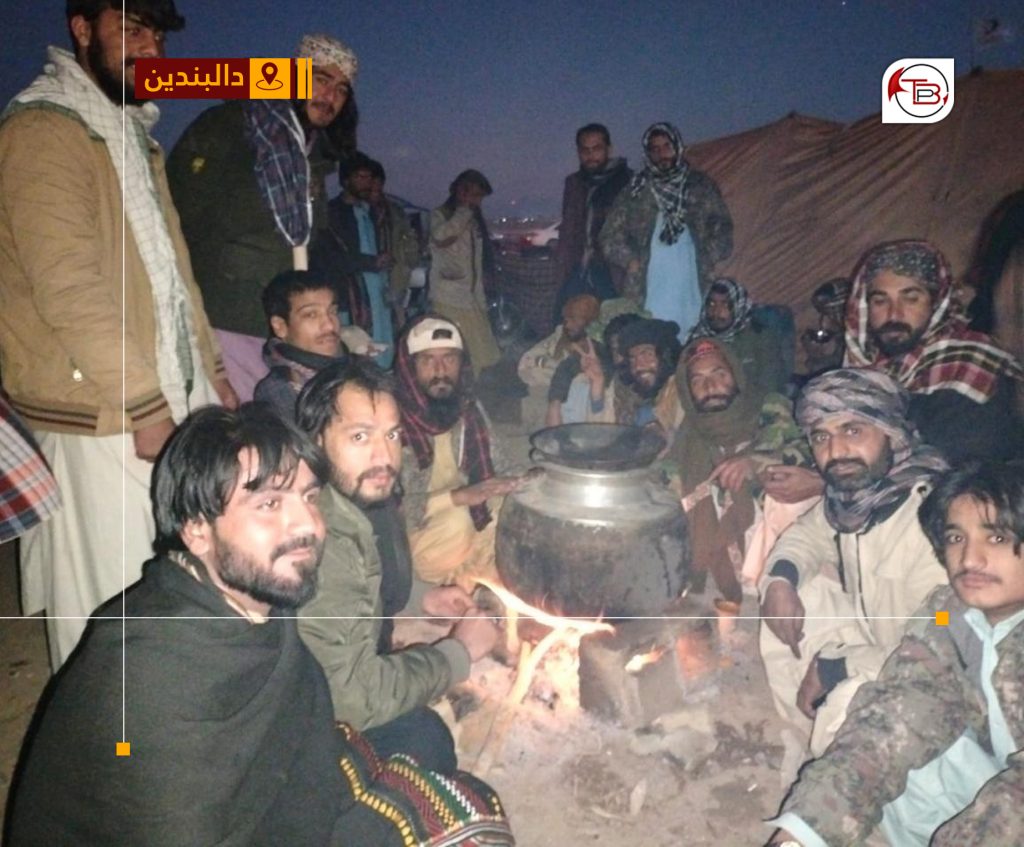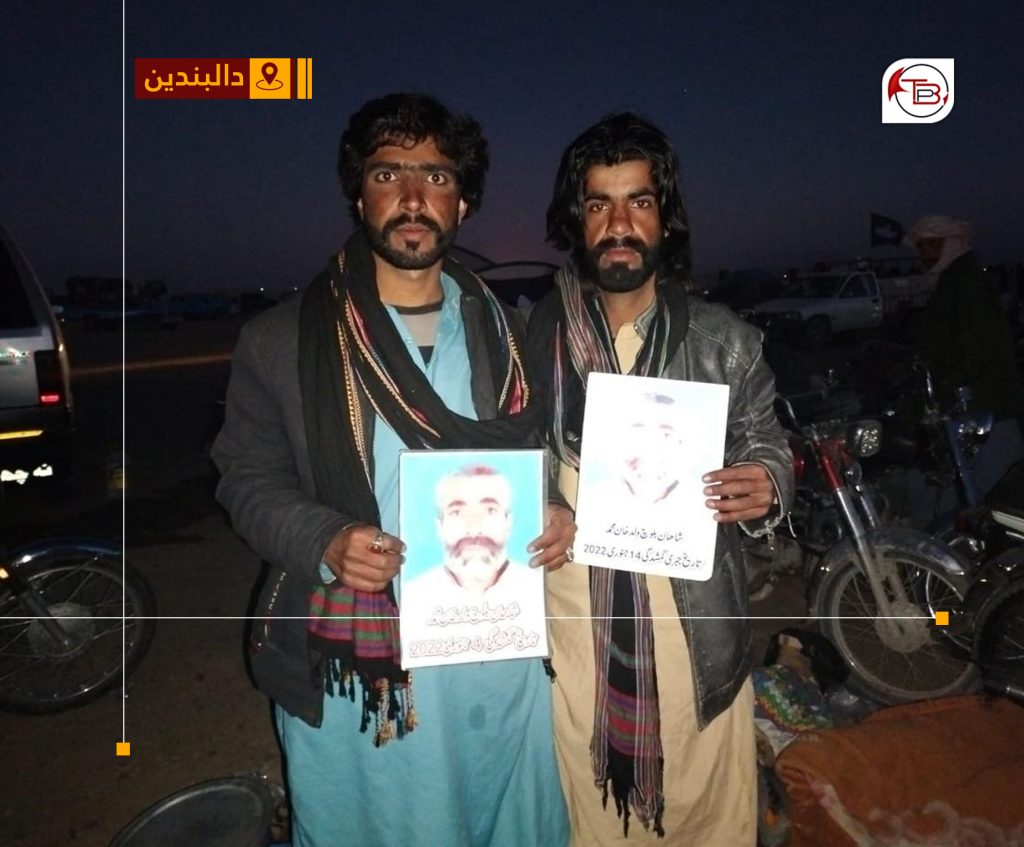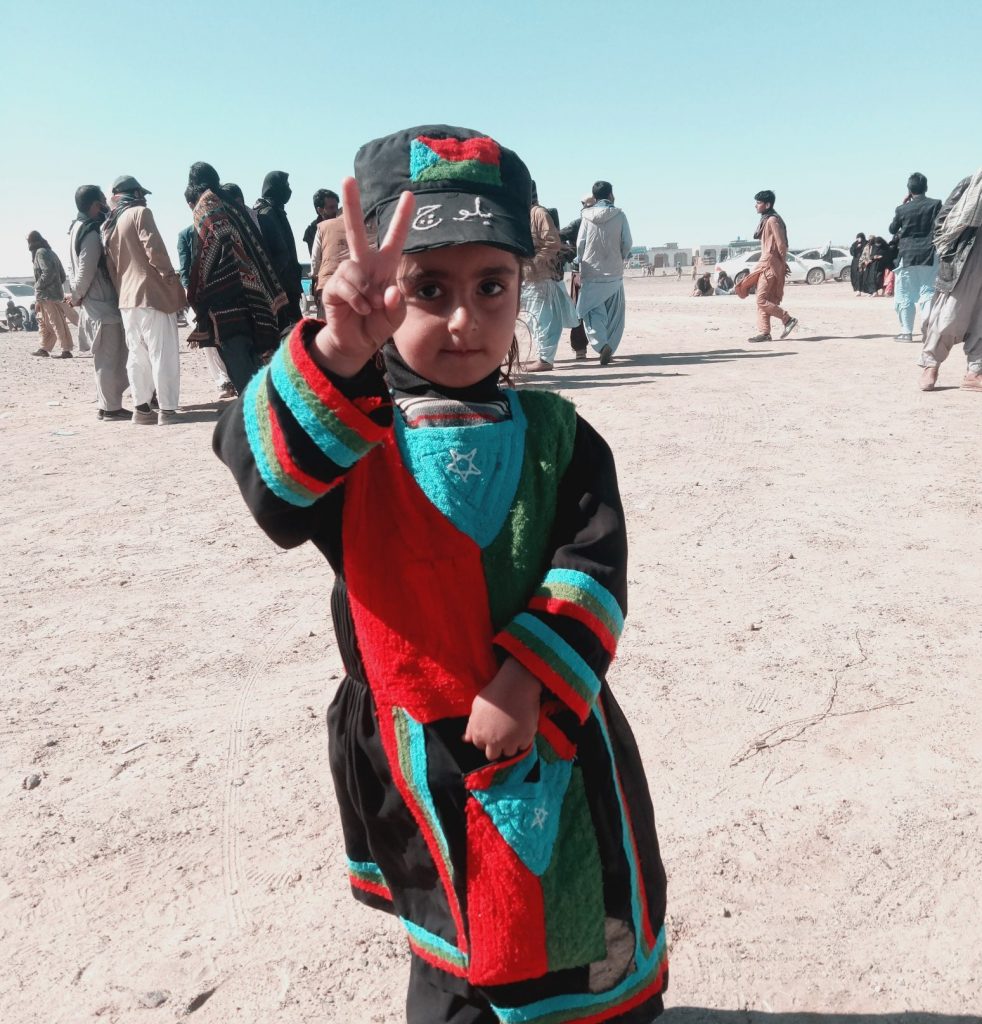A massive number of people from across Balochistan, including the Rakhshan region, converged on Dalbandin on January 25 to observe “Baloch Genocide Remembrance Day.”
The event proceeded despite reported internet shutdowns, a heavy security presence, and alleged attempts to discourage participants, according to the Baloch Yakjehti Committee (BYC).
Large Turnout and Opening Ceremonies
The gathering opened with the Baloch national anthem, followed by presentations detailing alleged human rights abuses and “genocide” in various parts of Balochistan.
BYC leaders—Dr. Mahrang Baloch, Sebghatullah Shahji, Dr. Sabiha, Lala Wahab, and Sammi Deen Baloch—addressed the large crowd, calling for unity and resilience in the face of “ongoing atrocities.”
Communication Blackout and Heavy Security
Local sources reported that internet services in Dalbandin and nearby districts were shut down three days before the event.
On the morning of January 25, both mobile networks and PTCL landlines were disabled, making government offices—including the Deputy Commissioner’s residence and Levies control room—unreachable, according to BBC.
Thousands of Frontier Corps (FC) and other security personnel were reportedly deployed in Chagai district.
Residents alleged officials distributed pamphlets warning locals not to attend and used various methods—including road closures and vehicle confiscations—to obstruct the rally.
In a social media post, Haji Wali Muhammad Badech of the Jamiat Ulema-e-Islam (JUI) criticized the clampdown on “non-custom-paid” vehicles, which are commonly used in underdeveloped regions of Balochistan, noting that it further complicated travel for participants.
BYC Declares Event a ‘National Referendum’
Despite these alleged hurdles, the BYC hailed the turnout as a “Baloch national referendum” against what they describe as “state repression and genocide.”
Dr. Mahrang Baloch, the BYC organizer, said the large number of families who arrived from every corner of Balochistan reflected a “model of unity.”
She thanked local residents for their hospitality and warned that any sabotage would only bolster the Baloch cause.
“This is just the beginning,” Dr. Mahrang said, calling on attendees to carry forward “the philosophy of the martyrs of the Baloch nation.”
She stressed that Balochistan’s mineral wealth would not be exploited without the consent of its people, and appealed to human rights organizations to take notice of alleged abuses.
“Injustices have united the Baloch today,” she added.
Wider Support from Baloch and International Groups
The gathering in Dalbandin received expressions of solidarity from both Baloch and international groups and activists.
The youth of North-East Syria released a message comparing the Baloch and Kurdish resistance movements, underscoring the common fight for justice, freedom, and dignity. Representatives from the Democratic Youth Council of Syria highlighted parallels between the Baloch and Kurdish resistance movements.
The Ronahî-Youth Center for Public Relations also issued a statement linking the Day of Remembrance for the Genocide of the Baloch, observed on January 25, with the Day of Liberation of Kobanê, commemorated on January 26. Ronahî called these days pivotal moments in the histories of Balochistan and Kurdistan, symbolizing both tragedy and resilience.
Baloch nationalist organizations, including the Baloch National Movement (BNM) and the Baloch Students Organization (Azad), also commemorated the day. BSO Azad called it a painful reminder of sacrifices made by the Baloch, urging persistent resistance against oppression.
Why January 25 Is Observed
January 25 is observed as “Baloch Genocide Remembrance Day” to remember victims of enforced disappearances and extrajudicial killings across Balochistan.
The date is traced to the 2014 discovery of mass graves in Tootak, Khuzdar, where more than 100 mutilated bodies were uncovered. Amnesty International later confirmed at least 169 victims, though local accounts suggest the true figure could be higher.
The roots of the Tootak incident lie in a February 18, 2011 military operation, during which two young Baloch men were killed and dozens of people were forcibly disappeared.
Locals claim a state-backed militia under Shafiq Mengal then ran a “Baloch-killing camp” in the area, detaining and torturing individuals before burying them on-site. In January 25, 2014, a shepherd discovered the mass graves.
On January 7, 2025, the BYC held a press conference at “Dasht Kabristan” in Mastung, known for its unmarked graves. Speaking at the site, Dr. Mahrang Baloch accused the state of burying victims of enforced disappearances as “unknown.”
“Hundreds of Baloch individuals, forcibly disappeared by the military and intelligence agencies, have been subjected to brutal torture and killed. Their mutilated bodies have been buried as ‘unknown’ across Balochistan,” she said.
The BYC insists January 25 stands as a solemn commemoration of these tragedies—a day to demand global acknowledgment of alleged “systematic genocide” in Balochistan.
They argue that other persecuted nations have received similar recognition, contending that the Baloch also deserve immediate measures to halt abuses and safeguard their people.
In Pictures: Dalbandin Gathering Marks ‘Baloch Genocide Remembrance Day’
